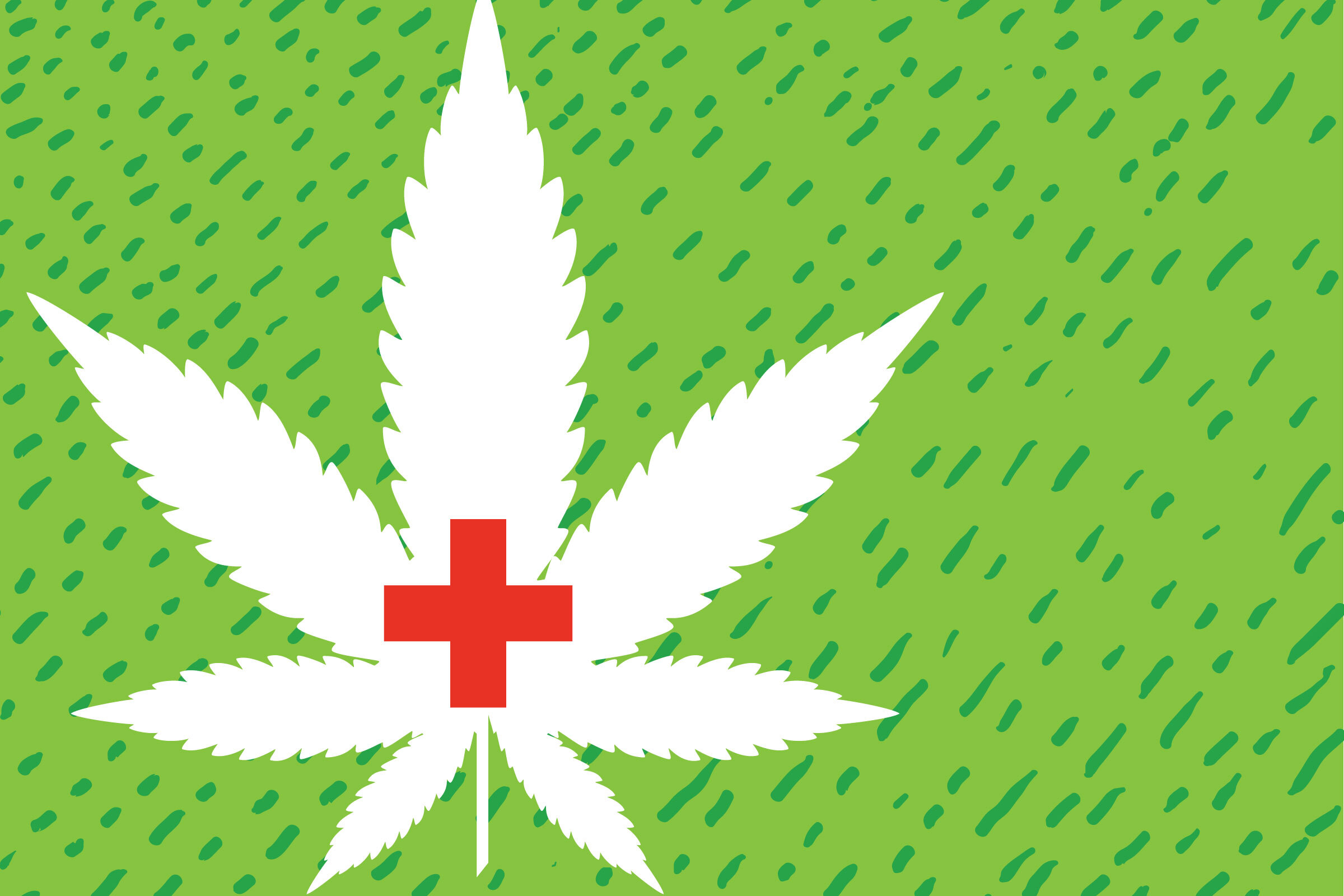Shedding Light on What Medical Cannabis Can Cure: a Thorough Evaluation of Its Healing Features
In recent years, there has been an expanding rate of interest in the healing capacity of clinical cannabis. While anecdotal proof is plentiful, a thorough exam of the clinical information relating to the efficiency of medical cannabis in treating these problems is called for.
Chronic Discomfort Administration
Persistent discomfort management remains a critical facet of healthcare, necessitating a comprehensive strategy for efficient therapy. In current years, clinical marijuana has arised as a prospective therapeutic choice for people experiencing chronic discomfort conditions. The endocannabinoid system, which plays a critical duty hurting modulation, has been targeted by cannabis-based therapies to enhance and minimize symptoms quality of life for patients.

In addition, medical cannabis offers a promising choice for people that experience excruciating side impacts from conventional pain medications. Its ability to attend to pain through a different mechanism makes it a useful enhancement to the arsenal of therapies available for persistent discomfort administration.
Epilepsy Therapy Potential
Clinical marijuana has revealed promising possibility in the treatment of epilepsy, using an unique restorative strategy for handling seizures in patients. Epilepsy is a neurological condition characterized by reoccurring seizures, affecting individuals of any ages. Typical therapies for epilepsy include antiepileptic drugs, but these drugs might not work for all patients and can have substantial side effects.
Research on using medical marijuana for epilepsy has actually exposed encouraging results. Cannabidiol (CBD), a non-psychoactive compound found in marijuana, has actually been specifically highlighted for its anticonvulsant homes. Researches have revealed that CBD can reduce the frequency and extent of seizures in patients with treatment-resistant types of epilepsy, such as Dravet disorder and Lennox-Gastaut disorder.
Furthermore, the FDA has actually approved a CBD-based medicine, Epidiolex, for the therapy of seizures associated with these extreme forms of epilepsy. This milestone highlights the expanding recognition of clinical cannabis as a beneficial healing option for managing epilepsy and supplies expect people who have actually not reacted well to standard therapies.
Nausea Or Vomiting Alleviation Conveniences
The reduction of queasiness with the usage of marijuana has actually been significantly identified for its healing advantages in different medical conditions. Nausea and vomiting are usual signs and symptoms experienced by people going through radiation treatment, those with food poisonings, and people with chronic pain problems. Clinical cannabis, with its active compounds such as THC and CBD, has shown guarantee in supplying alleviation from queasiness.

Additionally, medical cannabis supplies a natural choice for people that do not react well to conventional anti-nausea medicines or who experience extreme adverse effects from these medications. Clients undergoing radiation treatment, particularly, have reported considerable improvements in their lifestyle when utilizing cannabis to take care of queasiness. As research around continues to expand, medical cannabis is increasingly being considered as an important option for nausea alleviation in different medical settings.
Stress And Anxiety Reduction Impacts
Studies have demonstrated the possibility of marijuana in minimizing anxiousness symptoms through its interaction with check that the endocannabinoid system. The endocannabinoid system plays a vital duty in managing feelings, including anxiety, by preserving homeostasis in the body. Cannabinoids in cannabis, such as THC and CBD, interact with the endocannabinoid receptors in the brain, specifically the CB1 and CB2 receptors, to regulate anxiety-related responses.

Individuals with problems like generalized anxiousness disorder (GAD), social anxiousness disorder, and trauma (PTSD) might gain from the anxiolytic residential or commercial properties of marijuana (Medical Cannabis Clinic). Additional research study is required to figure out optimum dosages, delivery methods, and long-term effects on stress and anxiety administration.
Possible for Inflammation Control
With its known anti-inflammatory buildings, cannabis has revealed assurance in potentially managing inflammation within the body. Swelling is the body's all-natural feedback to injury or infection, but when it ends up being persistent, it can add to numerous conditions such as arthritis, inflammatory bowel disease, and even cardiovascular disease. Research study recommends that the cannabinoids located in marijuana, such as THC and CBD, can aid reduce and regulate the immune response swelling.
Researches have actually shown that marijuana can connect with the endocannabinoid system, which plays an essential role in managing swelling. By targeting the cannabinoid receptors, marijuana substances can modulate the immune action, leading to a decline in swelling levels. This makes marijuana a possible candidate for handling inflammatory conditions where conventional therapies have failed.
Additionally, cannabis-derived items like CBD oil have gained appeal for their anti-inflammatory buildings, with lots Recommended Reading of individuals utilizing them as a natural solution for conditions associated with swelling. While more research study is needed to completely recognize the devices behind marijuana's anti-inflammatory results, existing findings reveal encouraging outcomes for the prospective use clinical cannabis in managing inflammation.
Verdict
To conclude, clinical cannabis has actually revealed promising healing residential properties in managing persistent discomfort, dealing with epilepsy, eliminating queasiness, decreasing stress and anxiety, and controlling swelling. Its possible benefits in different clinical problems highlight the importance of additional research and expedition right into its medicinal usage. The proof suggests that medical marijuana can be a valuable option treatment option for patients seeking alleviation from a variety of conditions and symptoms.
In recent years, medical cannabis has arised as a possible therapeutic option for individuals suffering from chronic pain conditions.Medical cannabis has actually revealed promising potential in the therapy of epilepsy, offering an unique healing approach for managing seizures in people. As research in this area proceeds to expand, clinical cannabis is progressively being taken into consideration as a valuable option for nausea relief in various medical settings.
In conclusion, medical cannabis has shown promising therapeutic residential properties in taking care of persistent pain, treating epilepsy, alleviating nausea, reducing anxiety, and controlling inflammation. The evidence suggests that clinical marijuana might be a useful option treatment option for patients looking for alleviation from a variety of problems and Home Page signs and symptoms.